A large majority of Americans support tougher penalties for hate crimes, but the country divides on laws prohibiting hate speech
Most Americans would protect the rights of minorities, including increasing penalties for hate crimes, as legislated by the 1994 Violent Crime Control and Law Enforcement Act. Six in ten also support the 2009 expansion of that law to cover gender, sexual orientation, gender identity or disability. But the latest Economist/YouGov Poll also suggests that there are limits to American willingness to protect minorities.
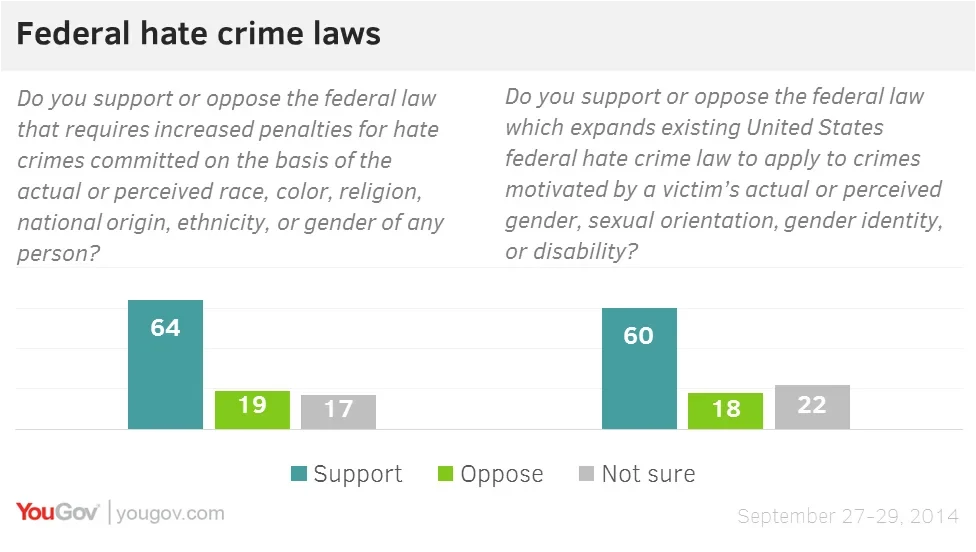
Opposition to these laws is small, but is larger among Republicans (both laws were passed during Democratic Presidential administrations). However, a majority of Republicans support the earlier law, and a plurality favor its expansion.
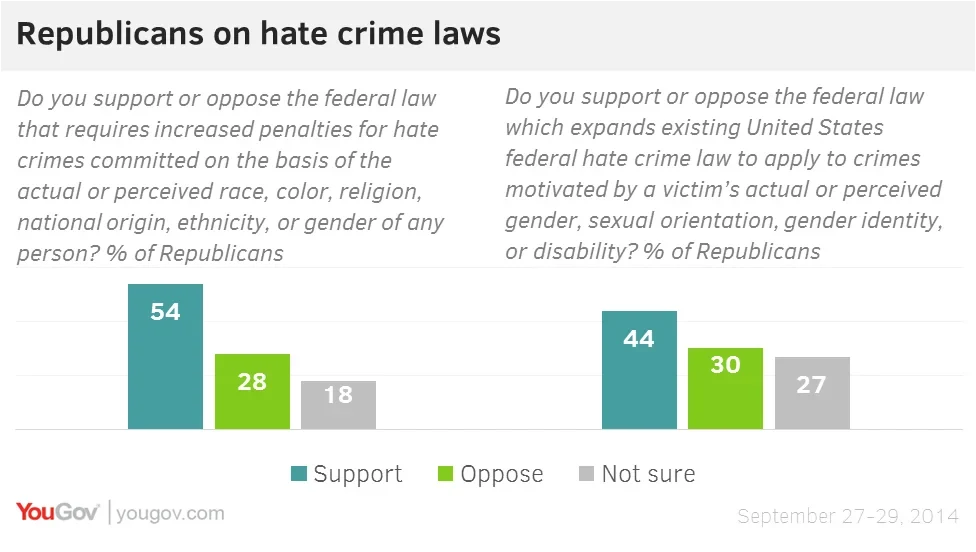
But the limits to protecting minorities appear to come when the protection infringes on the rights of free speech. Americans divide evenly on a proposal that resembles a law already on the books in part of the world – punishing people who publicly advocate genocide or hatred based on race, gender, religion, ethnic origin, or sexual orientation. Laws like this exist in places as diverse as France, Canada, Germany, Sweden and the Netherlands.
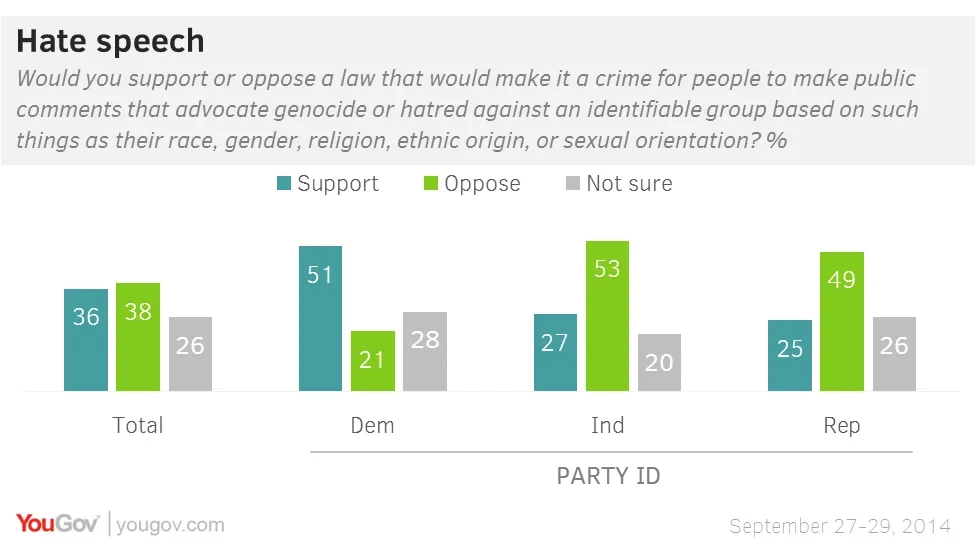
However, opposition to laws like this may not only be based on free speech concerns. There is a political component as well. Half of Democrats support such laws; half of Republicans and independents do not. African-Americans are in favor; whites are not. There is opposition in the South.
That proposal lists multiple groups, including those based on race, sexual orientation and religion. There is a great deal more support when it comes to the protection of religion alone. Pennsylvania has a state law adopted in 1972 that penalizes "defacing, damaging, polluting or otherwise physically mistreating in a way that the actor knows will outrage the sensibilities of persons likely to observe or discover the action" with up to two years detention. Other states have similar laws.
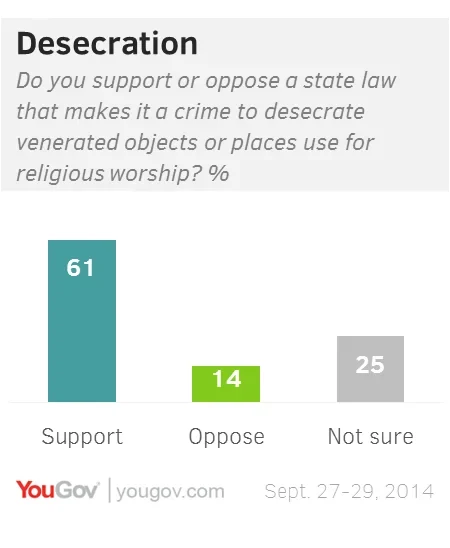
Americans, both Democrats and Republicans favor such laws, and by wide margins. Democrats support a description of the Pennsylvania law 57% to 15%. 72% of Republicans are in favor, and just 10% are in opposition.
Free speech – or at least public speech -- and the protection of religious objects required by the Pennsylvania law were in conflict last week when a Pennsylvania teenager posted pictures of himself on Facebook appearing to engage in oral sex with a statue of Jesus. Respondents in the Economist/YouGov poll were shown the picture and asked whether the teen should be prosecuted. The answer was “no,” but with some exceptions.
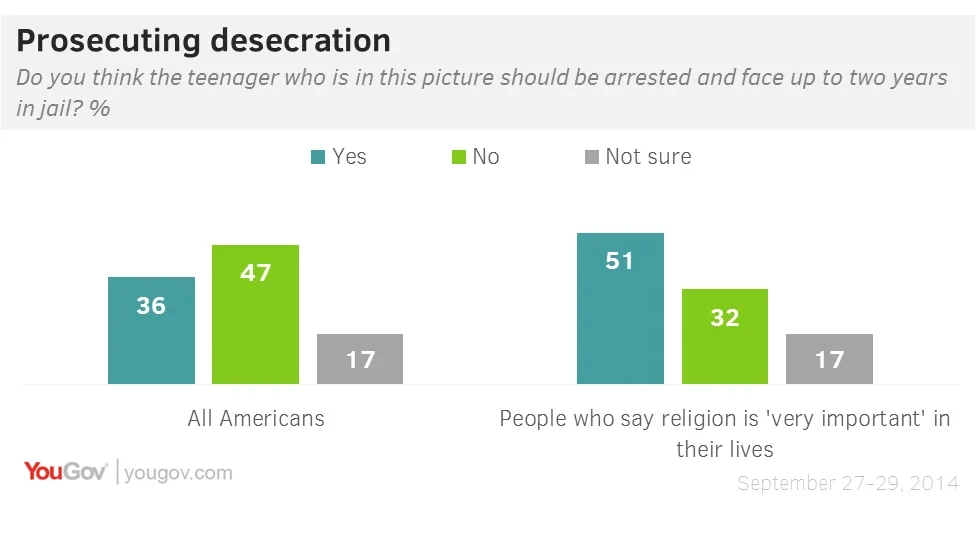
40% of Americans say religion is “very important” in their lives, and this group favors prosecution. So do African-Americans, 69% of whom say religion is very important, a much higher percentage that the public overall. Women tend to be more religious than men: by 41% to 30% women support prosecution, while men opposed prosecution by nearly two to one.
Full results can be found here.
Economist/YouGov poll archives can be found here.








